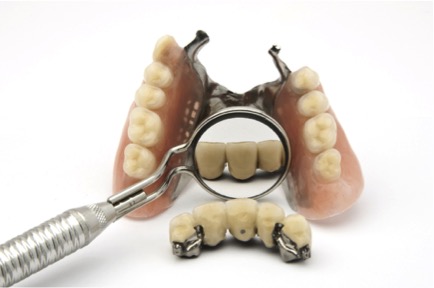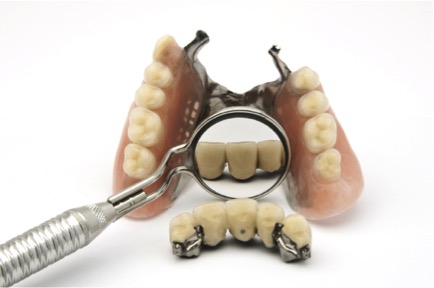This might seem like a straightforward question and you might be of the thinking that surely anyone with dentures would know the answer – but in actual fact this is a key question and one that we are asked a lot in the practice – not only by those who have had implants inserted but by those who may be needing dentures in the not so distant future.
So… How do Dentures Work?
This is ‘not so straightforward an answer’ for the simple fact that there isn’t a one size fits all denture. Like each and everyone of us, Dentures too come in all shapes and sizes.
Therefore how they work really depends on how they are made and the purpose they are going to fulfill- in otherwords the ‘type’ of the Denture.
Dentures are custom-made in a dental laboratory from impressions taken of your mouth. There are 3 key types of Denture – Partial, Immediate and Conventional:
- A Partial denture rests on a metal framework that attaches to your natural teeth. Sometimes crowns are placed on some of the natural teeth serving as a type of anchorage for the denture. Partial dentures offer a removable alternative to bridges.
- With an Immediate full denture there is a clue in the name in that it is inserted immediately after the remaining teeth are removed. (This is possible when you have had a prior visit to your dentist in order to have measurements taken and jaw models made). The obvious bonus offering of immediate dentures is not having to be without teeth, however in the case of immediate dentures, it’s important to have them relined a few months post insertion to assess their fit to the gums and comfort of the mouth as the bone supporting the teeth reshapes after healing and can often cause the denture to loosen.
- Thirdly, the Conventional full denture. This type of denture is placed in your mouth after any remaining teeth have been removed and surrounding tissue has healed. Healing can in many cases take several months during which time you are without teeth. Although this may be an inconvenience to the patient, the positive side is that the patient’s mouth is completely ready for the dentures to be inserted
In all cases, your Clinical Dental Technician will determine which Denture type is best for you!


